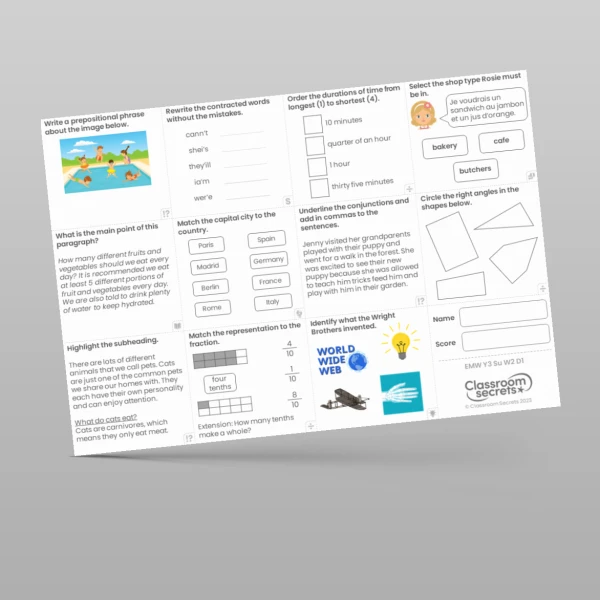

This Year 3 Summer Term GPS Assessment is fabulous for use when you want to check how much your class have learnt over the past year, or you want to fill gaps in their knowledge. This resource features questions that cover: prefixes, word classes, root words, paragraphs, and root words.
To make things easier for you, we have included an answer page with this resource that will make your marking a breeze. Use the tracker provided to keep track of your class's scores. Type in what they got and let the tracker tell you what level they are working at!
Tags
Test Practice
Summer
Year 3 Test Practice











